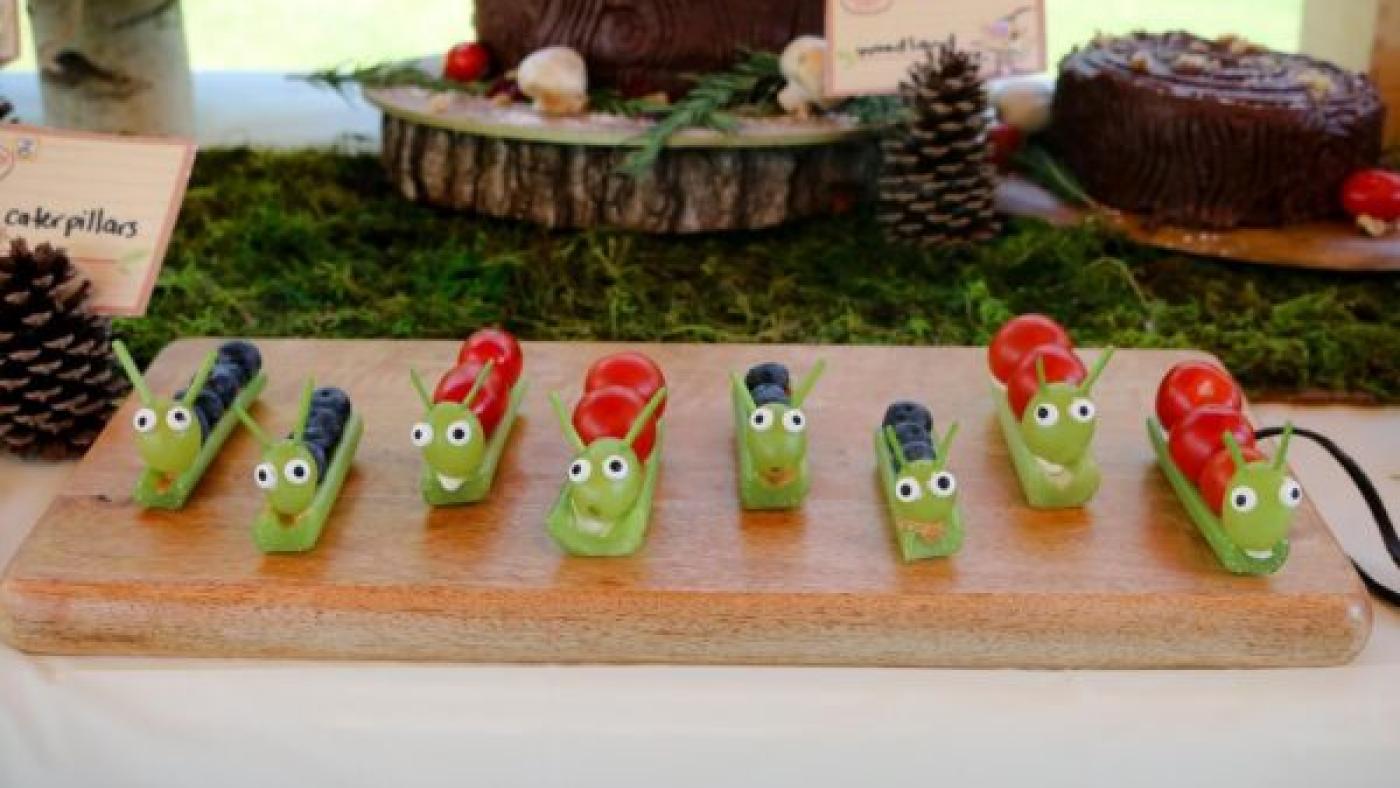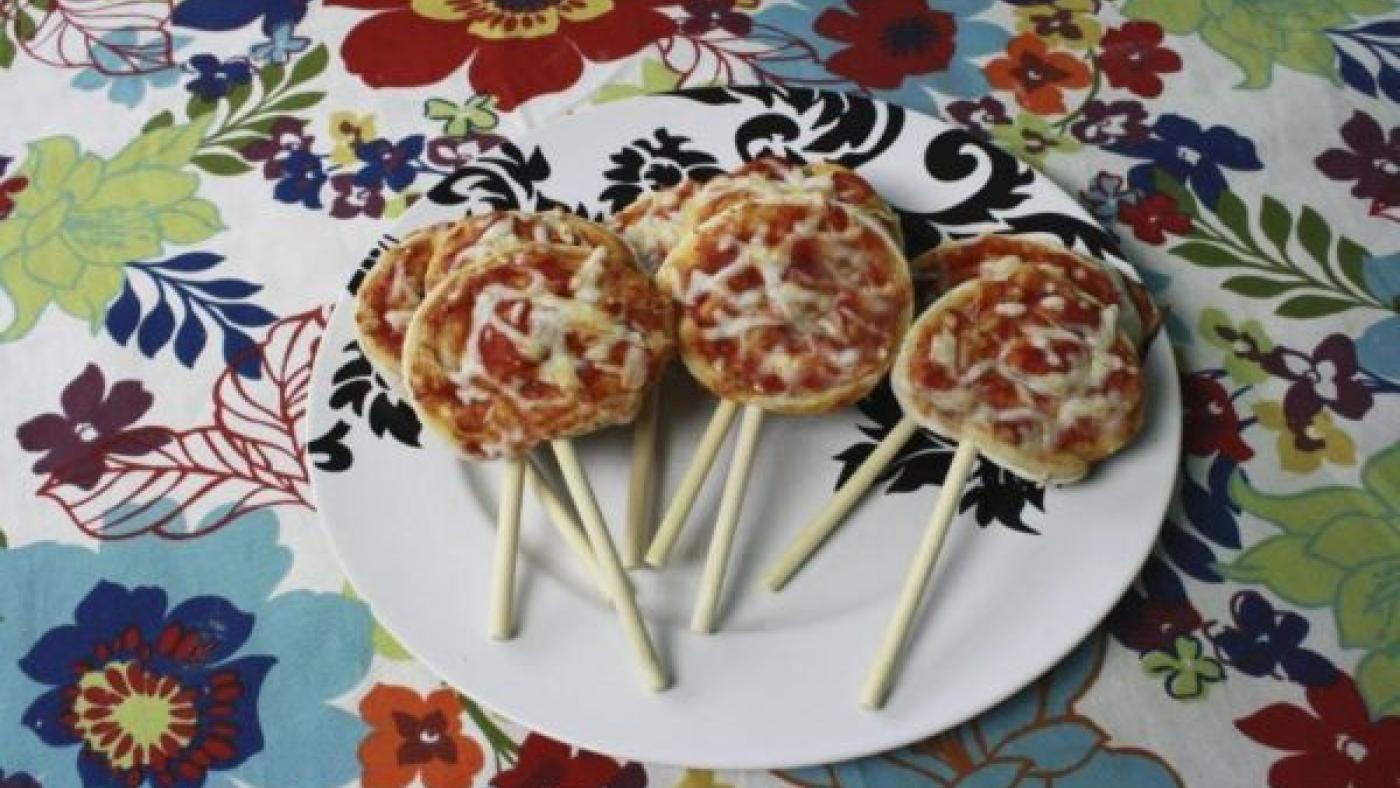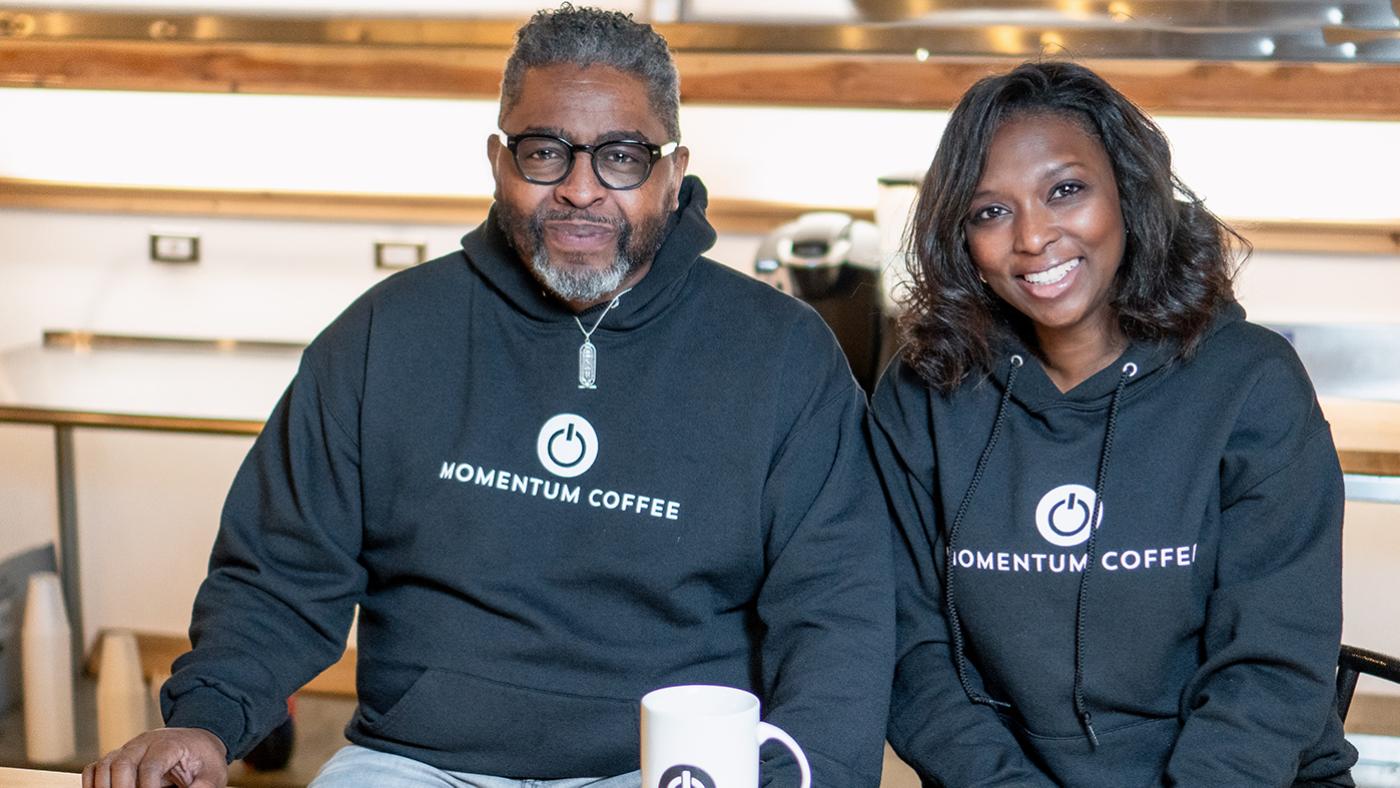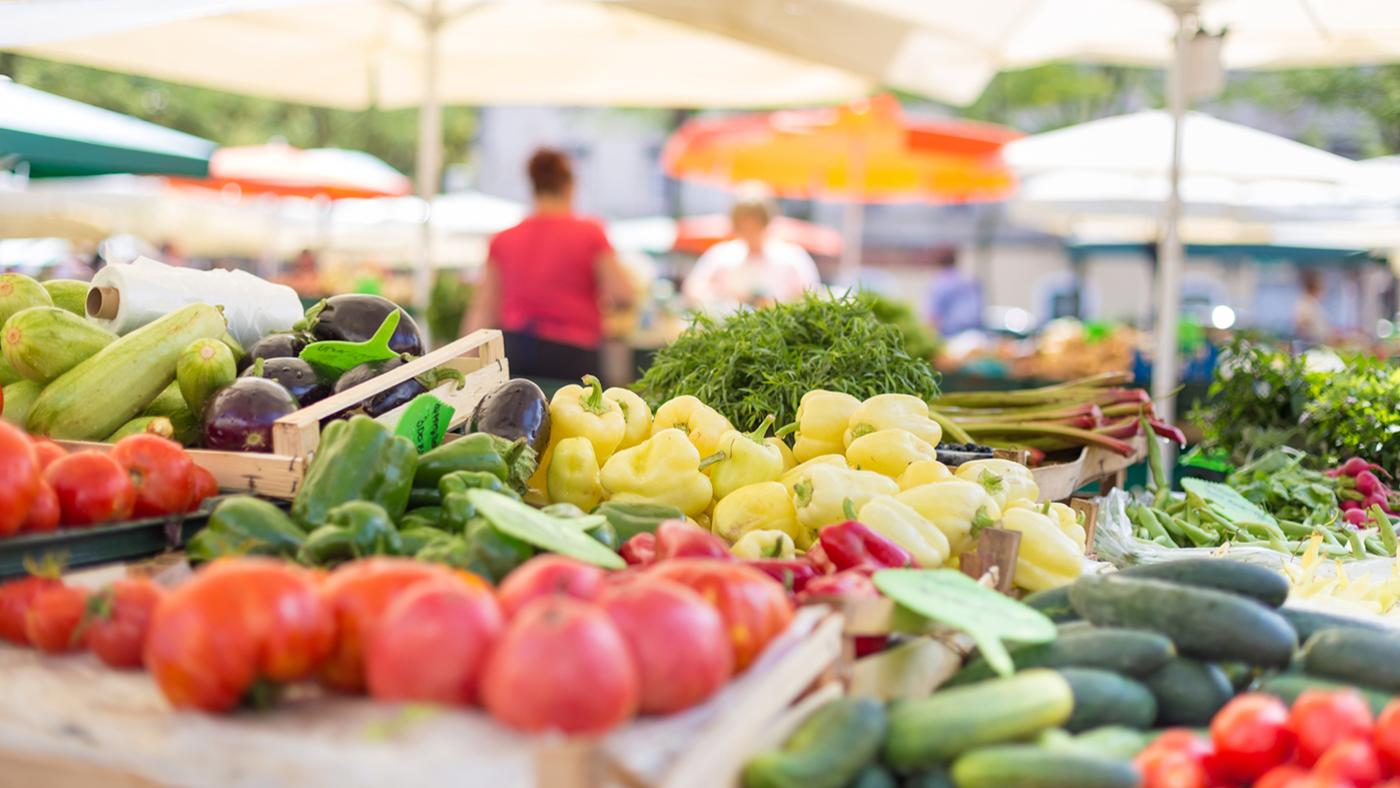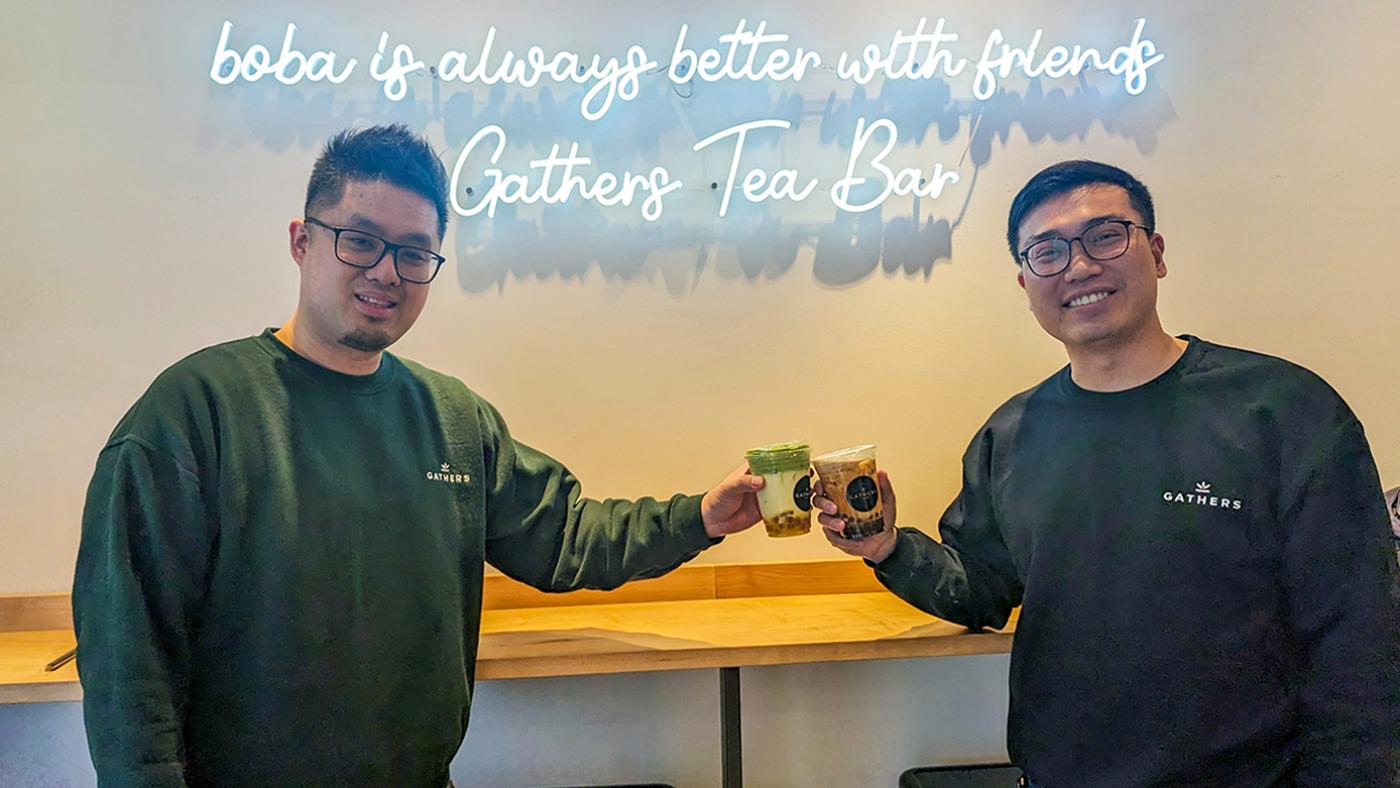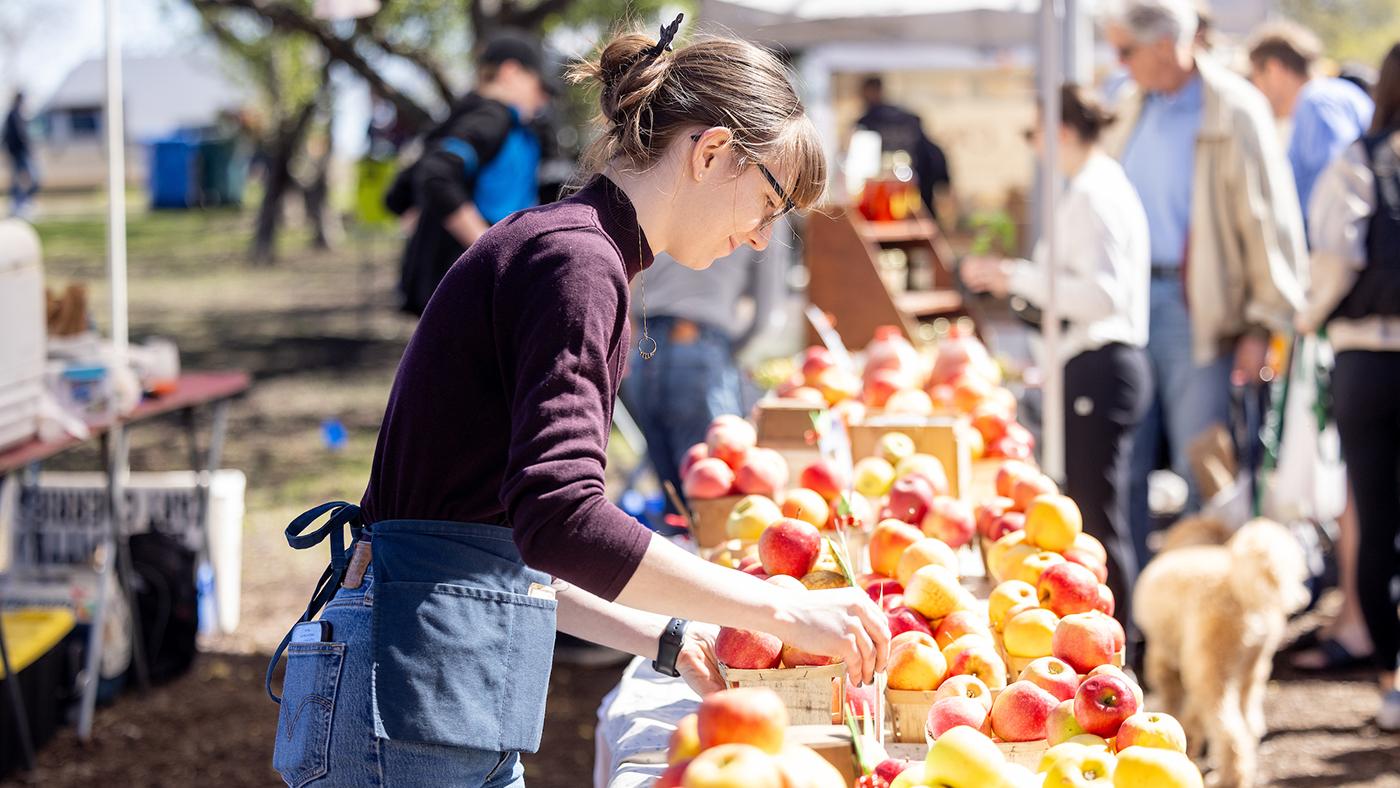Pickles, Zickles, and Giardiniera: Founders of Pickled Prince Relish Their New Role
Lisa Futterman
July 25, 2023
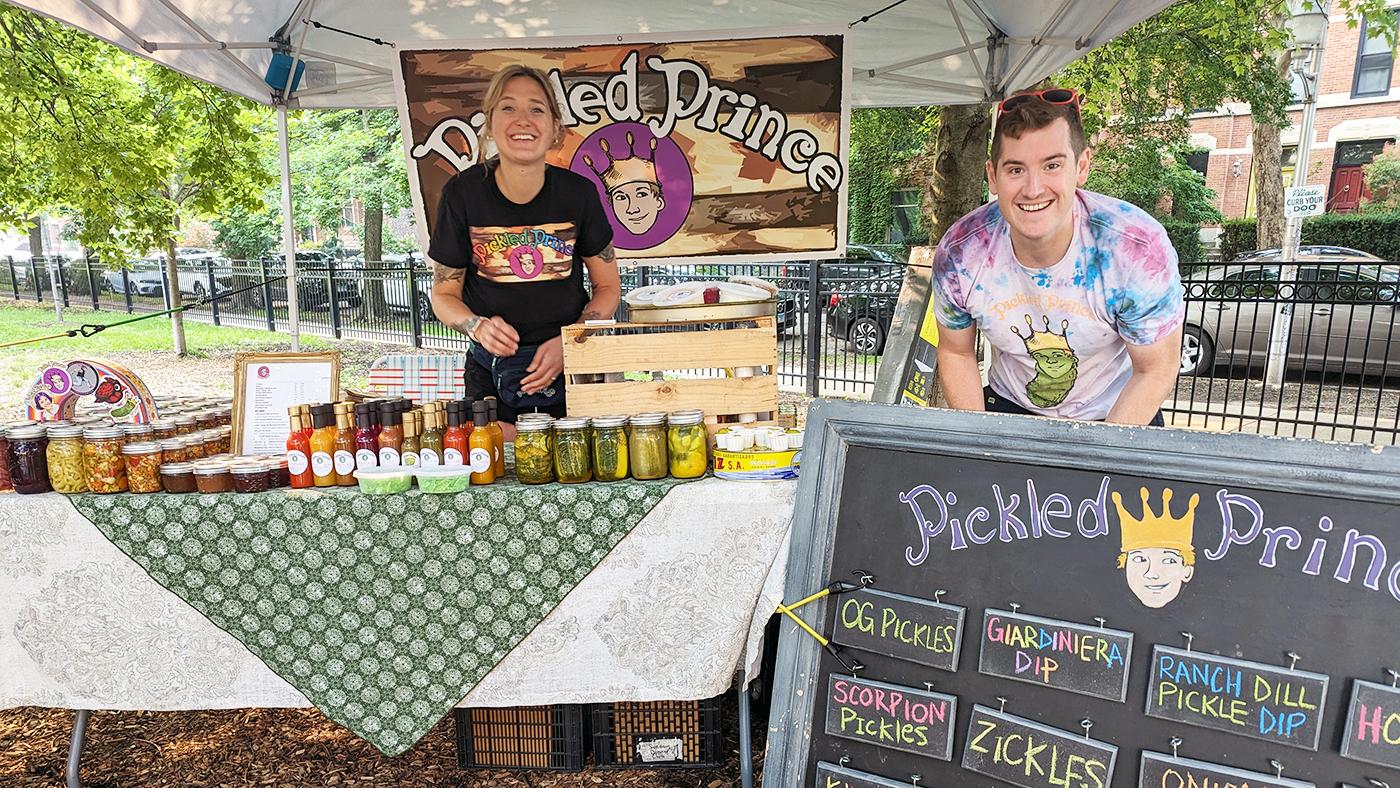
Get more recipes, food news, and stories by signing up for our Deep Dish newsletter.
When strolling through Chicago farmers markets or scrolling through Instagram, you may come across Pickled Prince, a tiny local company slinging handmade ranch dill pickle dip, fermented beet hot sauce, colorful giardiniera, and “Barbie Summer” kraut.
When chefs and owners Alex Skrzypczyk, 32, and Brian Greene, 38, met and started dating in 2018, they were both working in Chicago kitchens: Greene was chef de cuisine at Half Acre Brewing, and Skrzypczyk was sous chef at Sunday Dinner Club. Fate had brought them together at a pop-up, and all was well until March 2020 when the pandemic impacted both of their jobs. Bored on furlough, they did what chefs do, making pickles and sourdough bread and dropping them off on the doorsteps of family and friends.
As the world began to return to normal and Skrzypczyk went back to work, Greene kept pickling. He tinkered with his cold pack recipes, experimented with all types of fermentation, practiced pressure canning, and took an online acidification class to learn the ins and outs of pH and pickle production for public sale.
Fate continued to puppeteer the pair. Skrzypczyk jokingly referred to her partner as “the prince of pickles”—and the name stuck.
“Then,” says Greene, “my neighbor, John Airo, he’s an artist, he said ‘I’m going to make you a pickle sculpture.’ And he took a picture of me to make our logo.”
An hour later, Airo texted a drawing of Greene with a pickle body and a crown on his head.
They started selling their wares in Chicago farmers markets and to a few local retailers and restaurants, gradually adding products to the original lineup of “OG” pickles and Chicago style giardiniera.
Many of their jarred and tubbed items live their whole lives under refrigeration, in what’s known in the industry as cold-pack. To make them, the chefs start with sliced or speared cucumbers.
“We salt them,” says Greene, “then toss them with a little onion and garlic, and then we ice bath them and let them kind of chill out” for three hours, and then the liquid is drained off.
“Then we make the pickling liquid. It's completely chilled and it gets poured over. So everything's cold the whole time.”
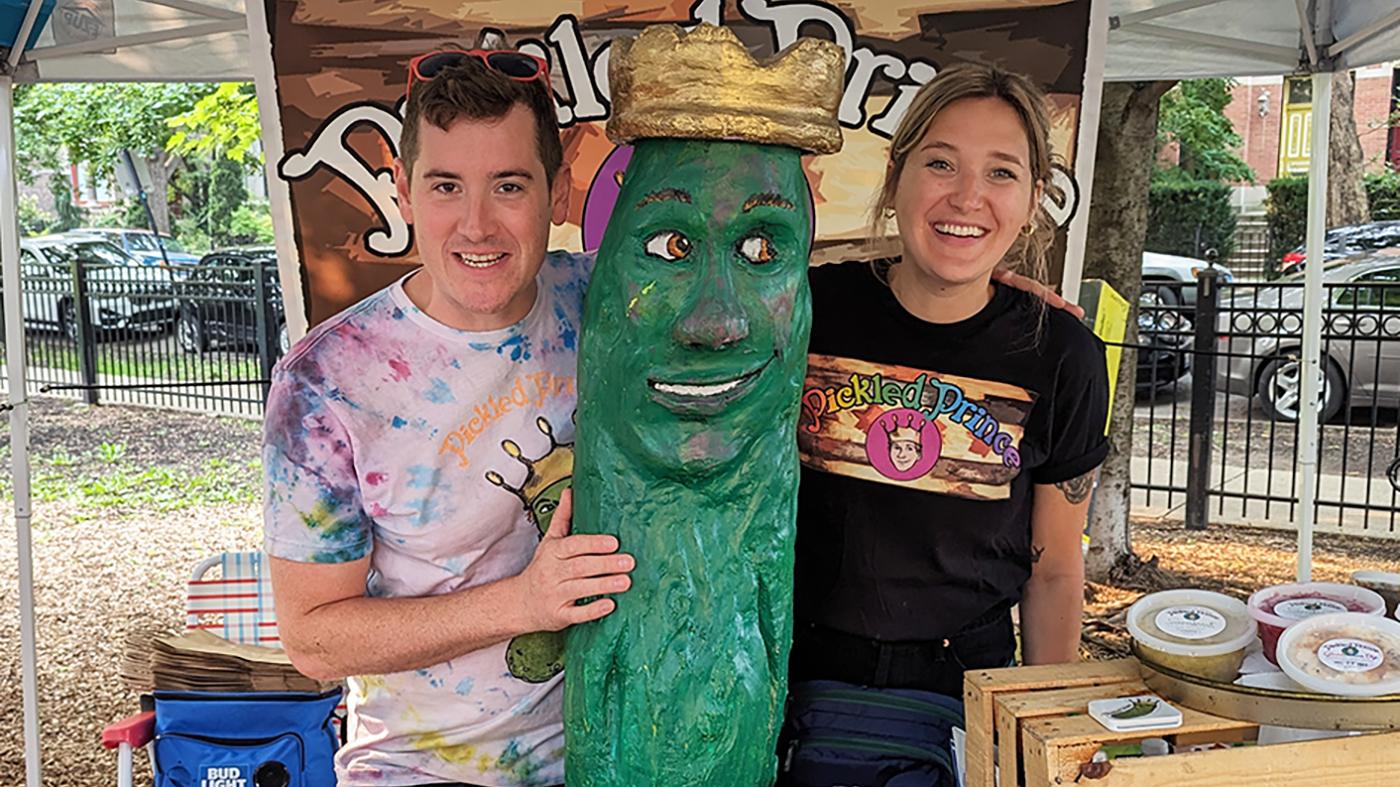 Alex Skrzypczyk and Brian Greene pose with their pickle sculpture, for which Green was the model. Image: Lisa Futterman
Alex Skrzypczyk and Brian Greene pose with their pickle sculpture, for which Green was the model. Image: Lisa Futterman
Other items, like Bloody Mary mix and giardiniera, get pressure canned to make them shelf stable. Their giardiniera, packed with a hand-chopped rainbow of cauliflower, carrots, celery, onions, fennel, garlic and peppers, gets dressed with Calabrian chili and extra virgin olive oils.
The chefs also make “zickles,” zucchini pickles in their “OG” vinegar brine, and honey mustard pickles with little bits of cucumber “like little nibblers or snacky-snacking snacking pickles,” dressed in the brine with farm honey, horseradish, and mustard powder added. Pickled red onions and pickled banana peppers are popular for sandwiches and salads, and soon customers wanted pickled beets added to their ever-growing list.
Seasonal fruits and vegetables feature prominently too, in everything from rotating flavors of Ola’s jam (Ola is Skrzypczyk’s Polish name) to thirteen varieties of hot sauce. Among the hot sauce varieties are, of course, a dill pickle flavor, Ola’s pineapple habanero, and a sweet but searing fruit-based jerk sauce named “Tear Jerker” by Skrzypczyk’s brother.
“We started with the core four but then the seasons happen,” Greene says. “We rotate the fruit for the jerk sauce. Right now, it’s rhubarb but…as we run out, we’ll shift gears and see what we can get off the farmers market table.”
Skrzypczyk loves being part of the farmers market community. “It's just a lot of like-minded people just trying to grow their business and everybody at the market supports everybody,” she says.
The barters and trades are a bonus with, for example, the chance to swap pickles for focaccia. “We don't go to the grocery store ever because everything [we eat] comes from the farmers market,” says Skrzypczyk
Influenced by their mutual Midwestern upbringing (Skrzypczyk is from the Chicago suburbs and Greene hails from Michigan), they branched out into a line of dips.
“We love dips. But it's also important,” says Skrzypczyk, “to give people what they are looking for…you want to be their pickle company. If they love the ranch dill pickle dip, we are making ranch dip with dill pickles in it.”
Green shares the secret: “It’s pickles just relished and folded in with a bunch of dill and dill pickle hot sauce to give it more of that pickle edge.”
Production day is Monday, and during the busy summer season, the couple will cut, salt, brine, and jar up to 150 pounds of produce in a given week. Sounds like a lot to the layman, but, says Skrzypczyk, “knife work and prep work is my favorite part of it. My favorite part about being a chef is cooking the actual food.”
Their tip for home picklers: For whatever you are pickling, but especially cucumbers, be sure to salt the cut vegetables and soak them in ice water for three hours before adding your vinegar brine. This ensures even seasoning for crispy, well-salted pickles.
For now, everything in their life together is measured out in jars of pickles. They’re getting married next year, but they’re not going back to their traditional restaurant jobs.
“One beautiful thing about it is that we're not tied to anybody else's schedule and expectations,” says Skrzypczyk. “It really gives us a freedom to not only make what we want to make, but to kind of have the flexibility in our schedules that for so long neither of us had…there's so much time over the years that we've missed out on. So many things with family, friends, like life events, just because of working and restaurants.”
Pleasing their customers with the best possible pickles brings them joy.
“It's the two of us. And it's a lot of work. When it comes to sourcing, prepping, packaging…getting ourselves to the market,” Skrzypczyk says. “It's a lot, so hearing the feedback about people really enjoying the products…gives us that extra energy boost to keep going on.”

